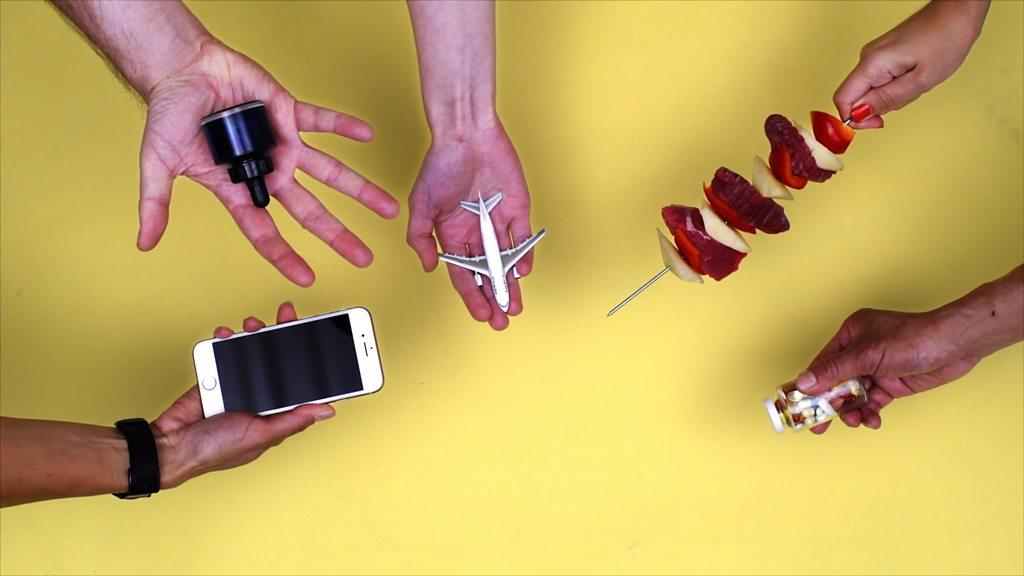Qasem Soleimani killed: Does Trump have a strategy?
- Published
Trump - We took action to stop, not start a war
US President Donald Trump's decision to authorise a drone strike that killed Iran's most powerful military commander has seen tensions between the two nations escalate. What's the strategy here, and what might happen next?
Mr Trump has long promised to take American troops out of the Middle East.
But under his presidency, US relations with Iran have become more tense as he has ramped up sanctions and pulled out of a nuclear deal he viewed as flawed.
Here's what US foreign policy experts believe may be behind the decision to kill Qasem Soleimani and what it means for US-Iran relations.

'Trump is not a grand strategist'
PJ Crowley is a former US Assistant Secretary of State and author of Red Line: American Foreign Policy in a Time of Fractured Politics and Failing States.
Why now?
We had the attack by the Iranian-backed militia and the response against its compounds in Iraq and Syria.
The Trump administration was surprised by the magnitude of the attack on the embassy in Baghdad, viewed it as an escalation and believed that Soleimani was behind it. Presented with a target of opportunity, the president authorised the strike.
What's Trump's strategy?
Donald Trump is not a grand strategist. He lives in the moment and acts by instinct. I would be surprised if he thought through the after-effects.
He was presented with the opportunity to take out a "bad hombre" that Obama hadn't. That was probably all he needed to hear.
What next?
Iran has promised to respond and has lots of proxies that will look for targets of opportunity across the region. They understand enough about American politics to know that the key to Trump's re-election campaign is the US economy. If they can disrupt it, they will.
In theory, the Trump endgame is forcing Iran back to the bargaining table for a "better deal" that takes into account not just Iran's nuclear ambitions, but its missile program and regional behaviour as well.
Qasem Soleimani: Who was Iran's 'rock star' general?
It's implausible to see how this moves us closer to negotiations. Secretary of State Pompeo is dreaming when he says we are going to be widely applauded across the region.
In Jerusalem and Riyadh yes, but the rest of the region is holding its breath.
What about his promises to leave the Middle East?
The president has never resolved the inherent contradiction within his Iran policy. He wants to exert maximum pressure while attempting to extract the United States from the region.
While the president has consistently criticised Middle East wars with nothing to show for them, he has taken an action that at least in the short-term increases the risk that the existing political and economic conflict between Iran and the United States will escalate into a shooting war.

'The stick and the carrot'
William Tobey is a senior fellow at the Harvard Kennedy School's Belfer Center for Science and International Affairs, and the former Deputy Administrator for Defense Nuclear Non-proliferation at the National Nuclear Security Administration.
Why now?
The timing is probably reflective of the fact that the maximum pressure campaign has been surprisingly effective.
Tehran has chosen to escalate from the economic dimension to the military dimension, first with strikes against oil tankers and facilities and later against contractors.
One could see this as an attempt to close off that channel for escalation, to tell Tehran: "Look, that's not going to work for you."
Feeling the squeeze: Iran sanctions explained
What's Trump's strategy?
He's pursuing a tricky policy - to apply so much pressure that Iran feels that it has literally no choice but to return to the negotiating table and have a better deal, but not so much pressure that Iran thinks that there's no chance that the US will actually either adhere to a deal or even strike a deal that would be tolerable to them.
In some ways, you see the stick - with the attack on the Soleimani convoy - but a carrot by the president saying: "Look I don't want to have war with Iran."
He's trying to hold open the possibility that he doesn't see unlimited conflict as a constructive path.
What next?
Iran has seen staggering inflation rates and devaluation of their currency. Having fought a losing battle on the economic sanctions front, they decided to open a new front - Military strikes.
I have a belief that nation states that feel like they're either aggrieved or attacked become more risk-tolerant.
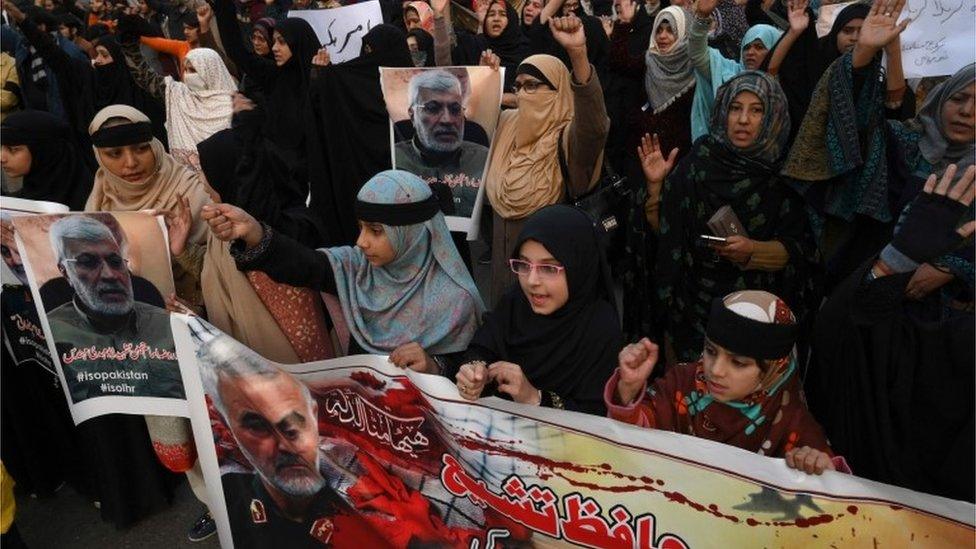
Protests have also taken place outside Iran - here in Pakistan
We've certainly seen a high risk-tolerance by the government in Tehran...I suspect their willingness to take further risks will increase.
So the question is, which will end first - the maximum pressure campaign or Tehran's ability to resist it?

'Trump was painted into a corner'
Luke Coffey is the Director of the Allison Center for Foreign Policy at the Heritage Foundation, a conservative think-tank based in Washington DC, a US Army veteran and a former special adviser at the UK Ministry of Defence.
Why now?
I think every person has a limit.
When you look at everything that Iran has been doing over the past year... I think it's clear that Iran was trying to provoke some sort of response from the US.
Gen Soleimani was a popular figure in Iran
Trump, because he's not very military interventionist, was trying to avoid this situation. I suspect that he's been presented this option in the past and has rejected it, and then this week he decided enough is enough.
He's continued to say he wants to have a negotiated settlement with Iran with no conditions for talks.
Trump reached a point where he had to push back.
What's Trump's strategy?
The maximum pressure campaign is the strategy - the administration has been very consistent on this.
Trump's shown he's trying to get the Iranians back to the negotiating table and I think he's trying to do so with the least amount of military kinetic action.
I think Trump does see himself as this great negotiator and wanted to be the one to cut the deal, but was painted into this corner because Iran kept ratcheting their side of the pressure.
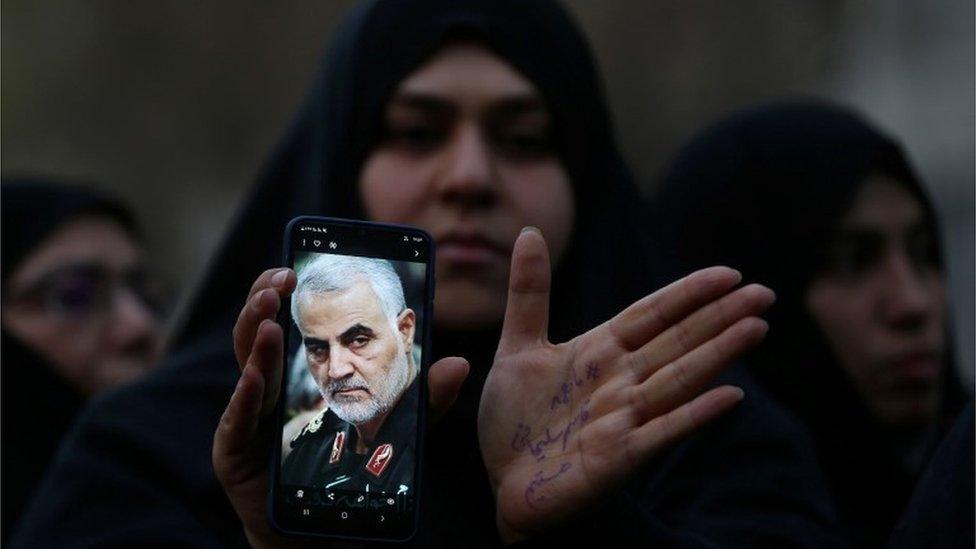
Protests are taking place in Iran - what will the wider repercussions be?
You don't just wake up one morning and decide to kill Qasem Soleimani. There had to have been interagency planning in terms of tracking his whereabouts, finding windows of opportunity.
We should not forget that Qasem Soleimani [was] a combatant inside a combat zone. No doubt that if the Iranians had the opportunity to take out someone similar in the US, they'd do so.
This is part of the drumbeat of conflict that we're stuck with in the Middle East. I don't think this is going to spiral over to become World War Three.
What next?
Iran's definitely not going to come to the table now.
That wasn't a reason not to do the strike - frankly, Soleimani had it coming to him and he got it.
He has the blood of American soldiers on his hands and has terrorised huge chunks of the Middle East for more than a decade. Just because Trump wanted to have talks with Iran doesn't mean he shouldn't have taken out Soleimani.
Hundreds of US troops arrive in Kuwait - thousands more could be deployed to the region
I don't think he did it with politics in mind, I think he wanted to avoid this situation or he would've done it earlier. But politically speaking for him this makes him look like a strong leader among his supporters.
What about his promises to leave the Middle East?
Trump barely likes US troops in Germany, so the idea that he's going to put US troops in Iran in an election year is, I think, inconceivable.
But he has to also show the US is only going to be pushed around so much.
- Published3 January 2020
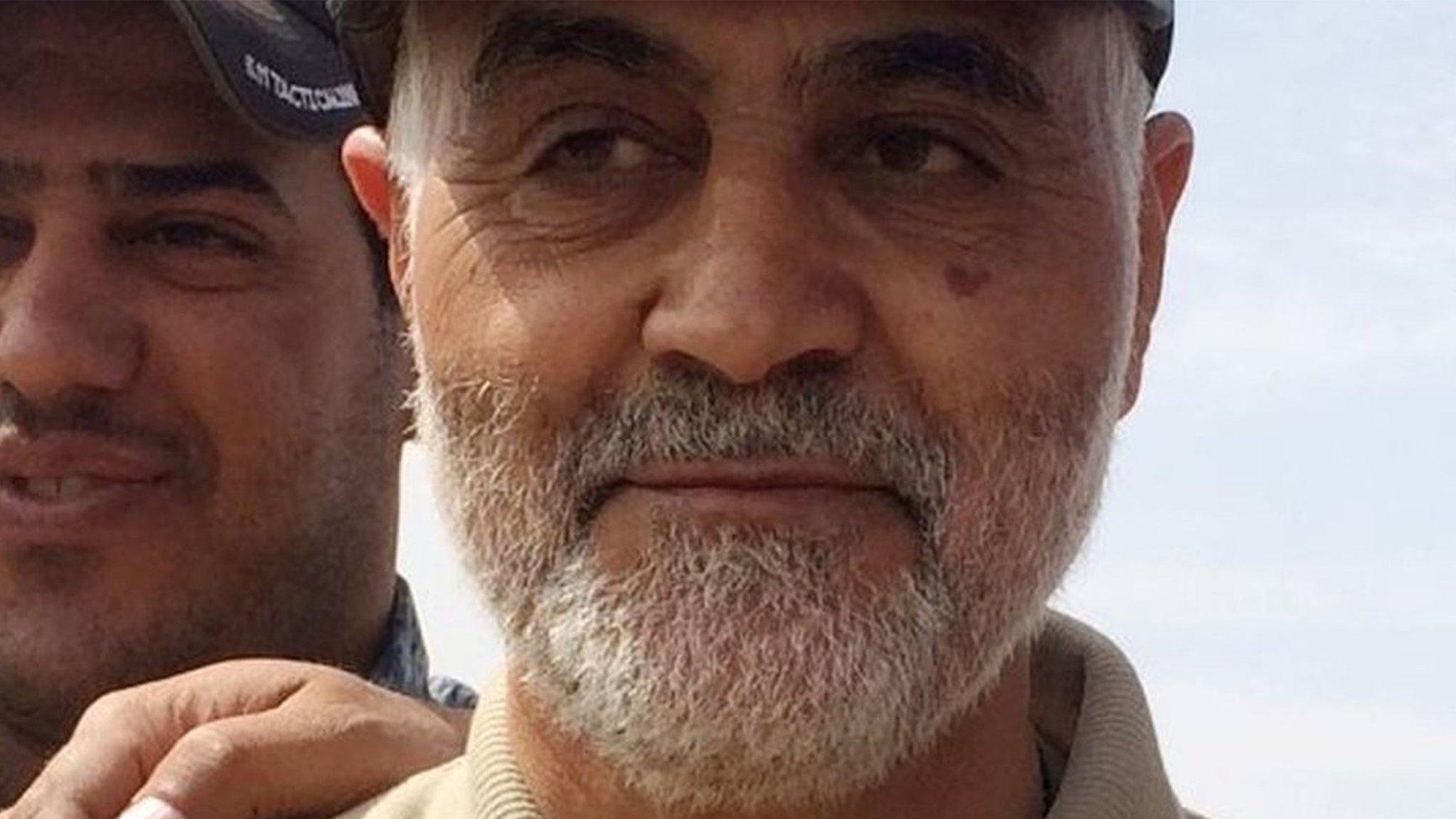
- Published3 January 2020
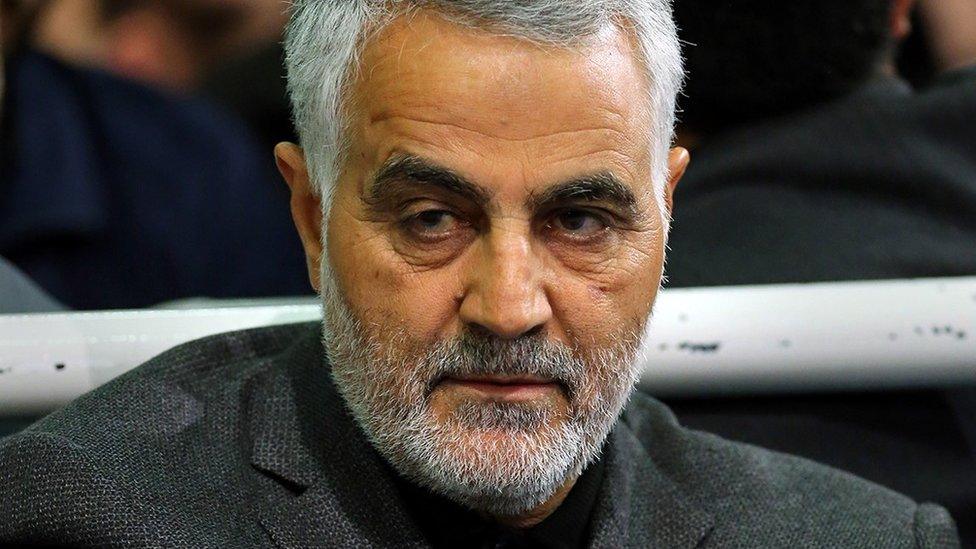
- Published7 August 2019
